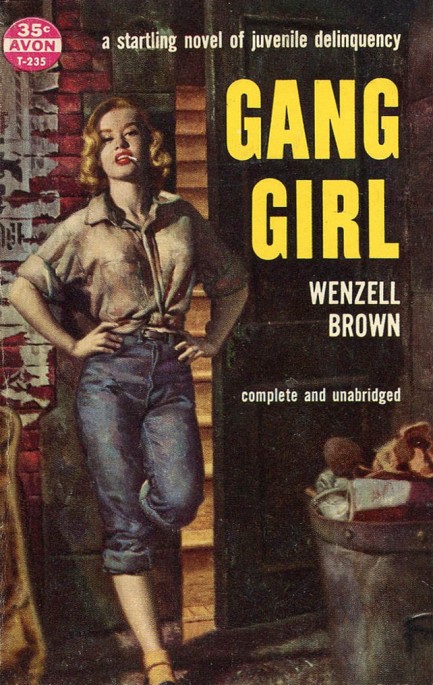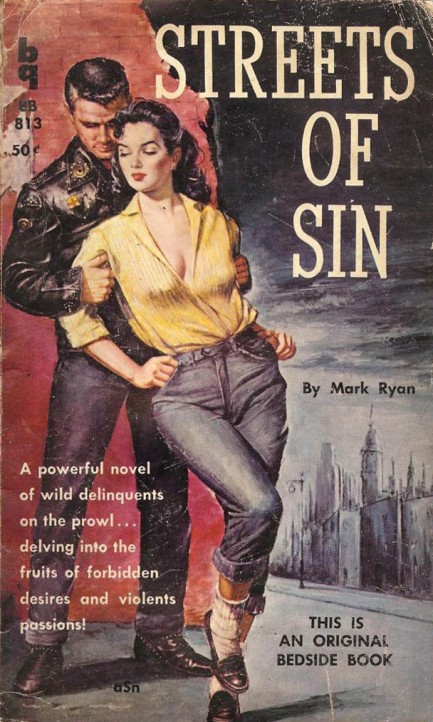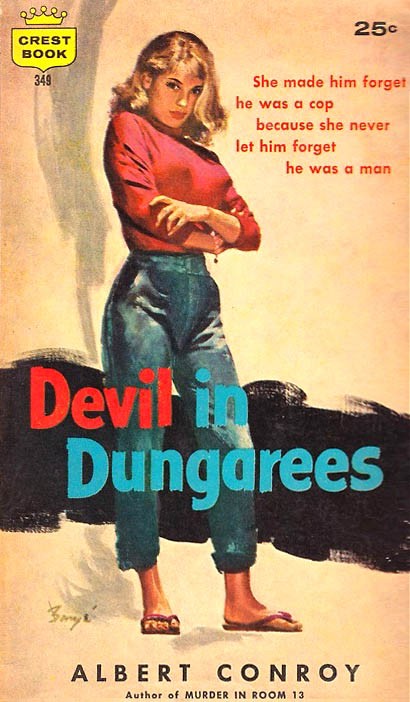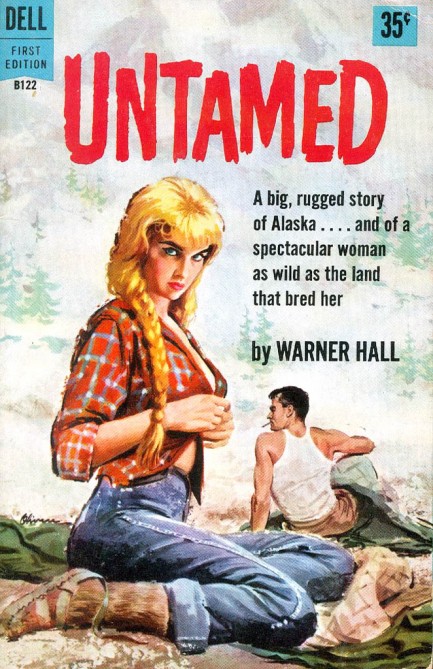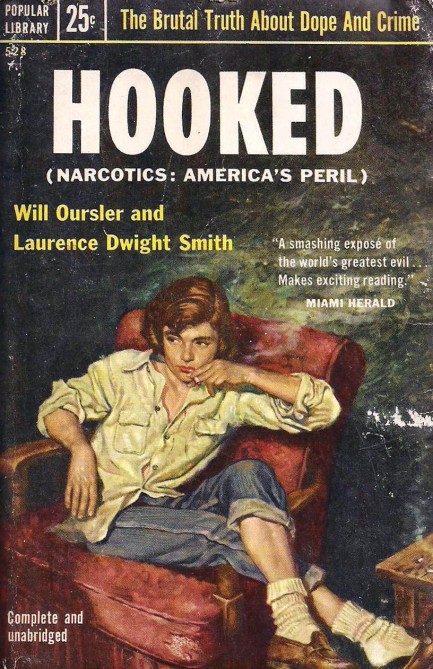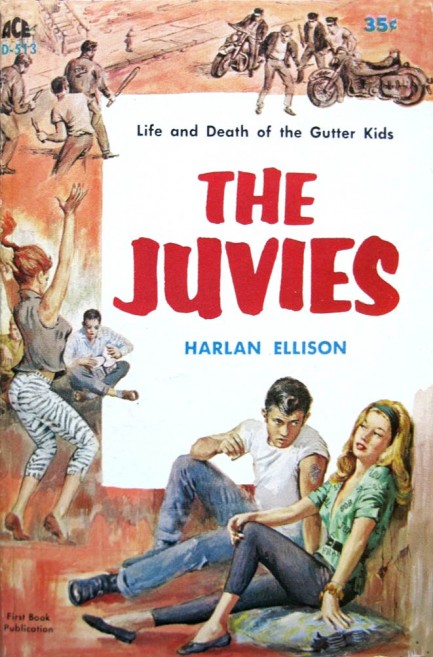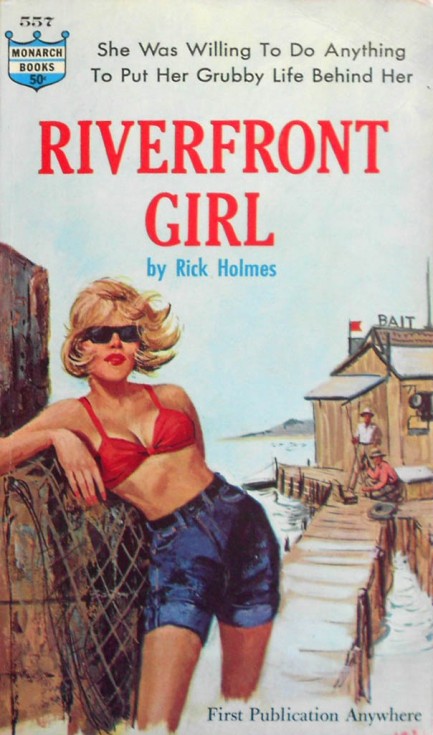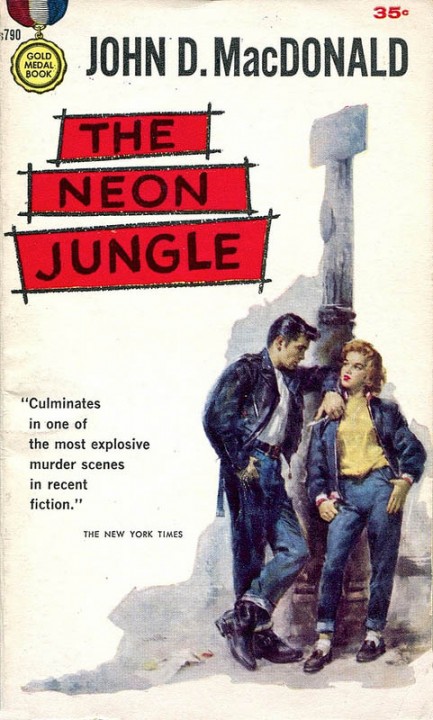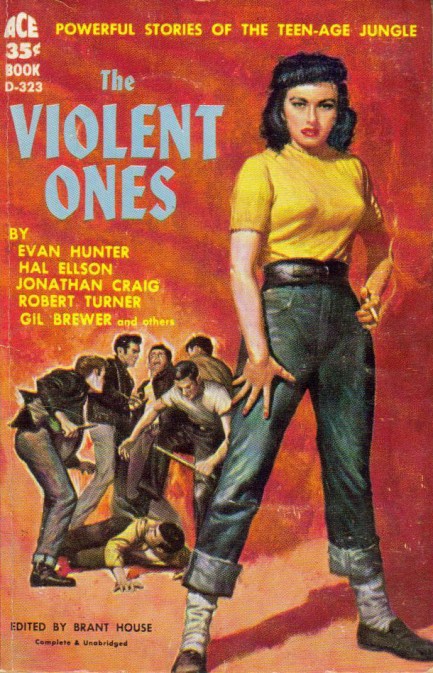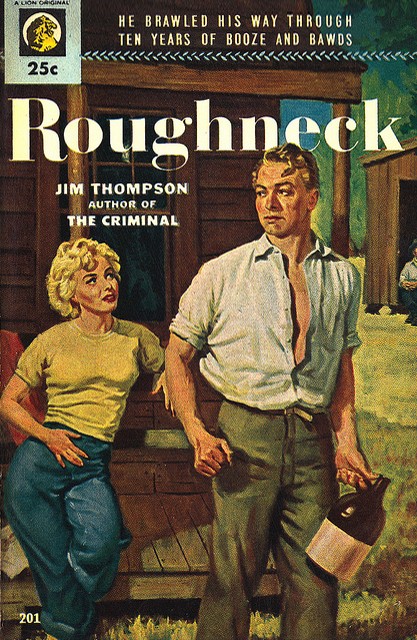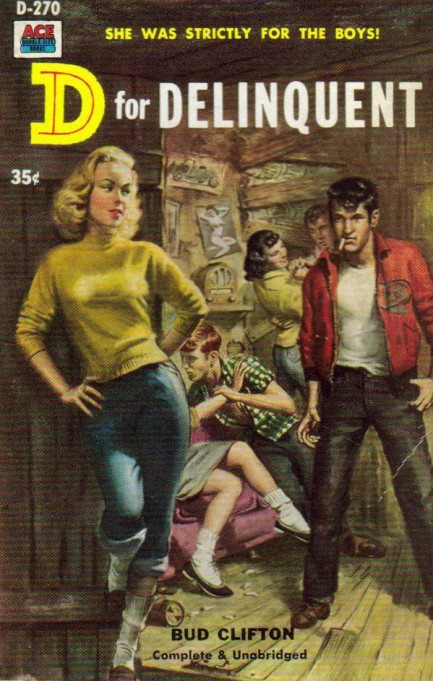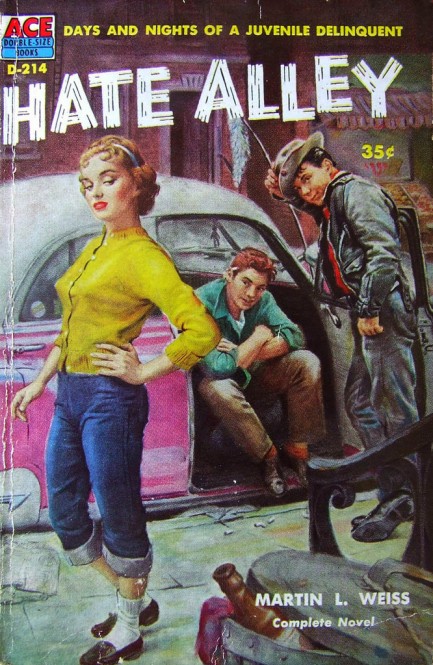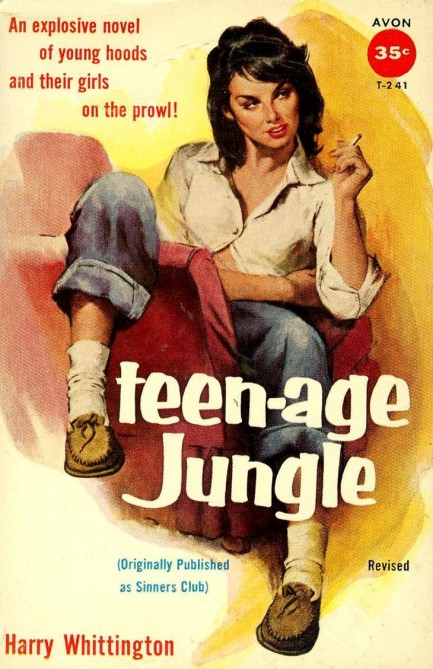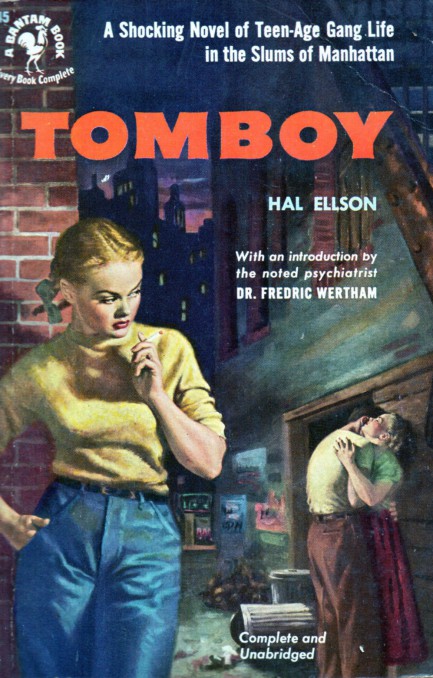 You're too late. We all got dressed ten minutes ago. 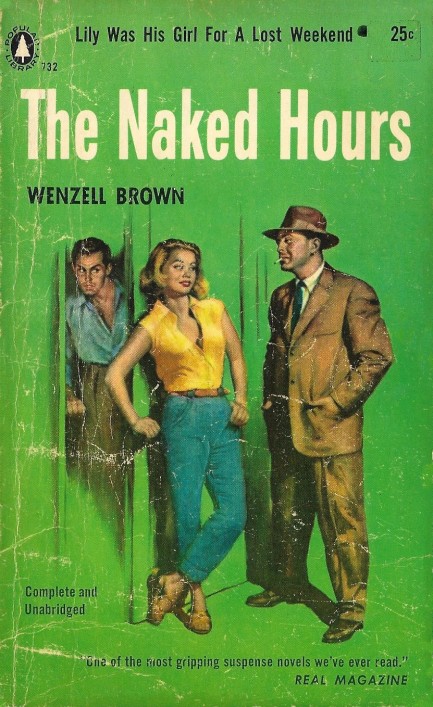 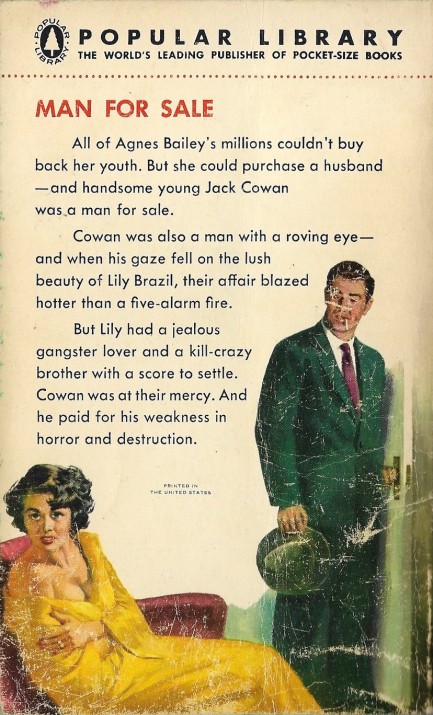
Above, The Naked Hours by Wenzell Brown, for Popular Library, 1956, with unusual bright green art by an unknown. We knew nothing about the book or the author, but this cover, battered as it is, attracted us, so job well done there. The book is good. A guy with a serious alcohol problem goes on a bender and wakes up in a strange bed with a girl he doesn't remember meeting. But she's sexy as hell so he embarks on an affair with her that evolves into a half-serious plot to kill his rich wife. Once he realizes the plot is real, he can't get out because the original transgression—that of his infidelity—will get him divorced and booted out of the Upper Manhattan good life if it becomes known. So he keeps trying to finesse his way to a solution, which involves outsmarting two hitmen intent on spousal murder. Odds on getting out unscathed are not good, but in effective crime fiction the odds should never be good. Nice one from Brown. We'll be looking for more.
 No, I really think you should run, Chico. True, you're just an amoral hustler, but people like that get elected now. 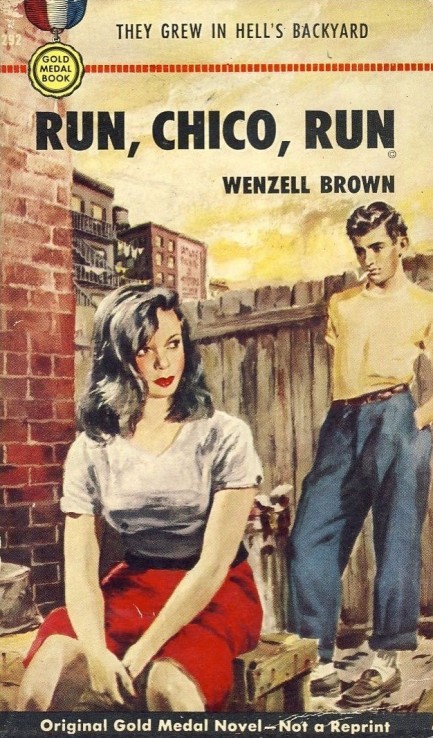
Obviously, Run, Chico, Run has nothing to do with running for office, but metaphorical running, as in trying to survive in a teen gang in Spanish Harlem. The lead character Francisco, aka Chico, yearns to escape the slums, and actually succeeds, at least for a time, by getting tossed into reform school. Four years later he's a changed man. Or is he? By hook or by crook, he finds himself being dragged back into his old life of street crime, and that isn't going to end well at all. No spoiler there, though—the book opens in court and tells the story of poor Chico's downfall working backward. Wenzell Brown wrote other novels in this vein, including Gang Girl, The Wicked Streets, and Teen-Age Mafia. Run, Chico, Run is 1953, with cover art from Barye Phillips. Another nice cover came with the 1960 re-issue, below, but that one's uncredited. 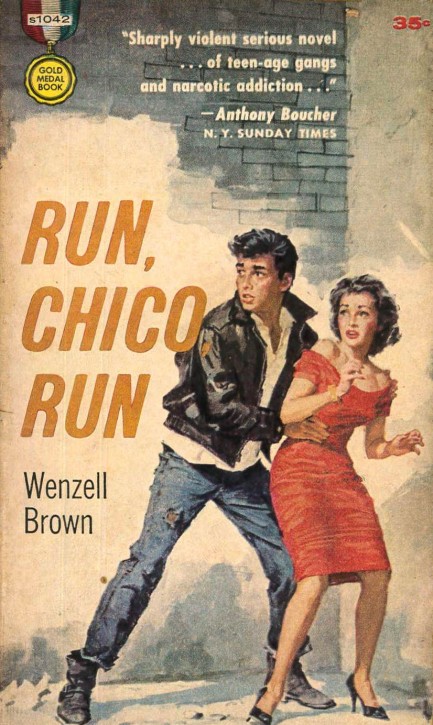
 Mid-century paperback art and the race to judgment. 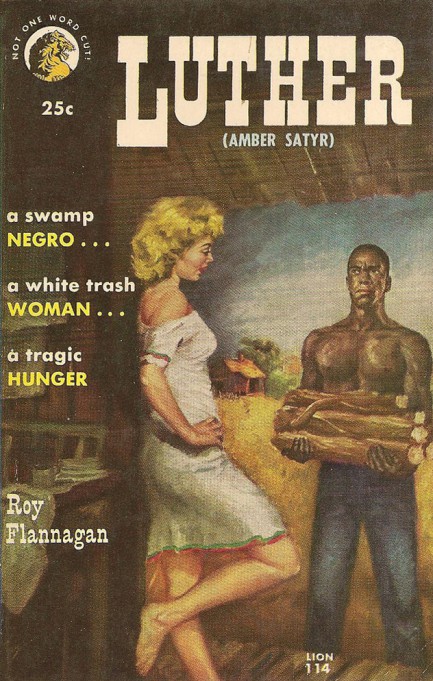
Science has given humanity a lot over the centuries. What will turn out to be one of its most important gifts is its conclusion, widely disseminated beginning in 1950 but by today firmly proven thanks to DNA sequencing, that race doesn’t exist in any scientific way. Of course, many don’t consider that fact a gift—but many people also had serious problems with the revelation that the Earth wasn’t flat. The concept of race comes entirely from the human imagination, and anti-black racism dates from within about the last five-hundred years, created principally as a means to justify the trans-Atlantic slave trade. Seen in that light, scientific proof that race doesn’t exist represents not new knowledge, but a return to knowledge that was the norm before the drive for riches caused men to deliberately warp human thought as a means to cover for mass cruelty. As an imaginary construct, however, race is persistently powerful, which the collection of paperback fronts above and below strongly illustrate. We weren’t around when any of these were written, but their existence reveals a surprisingly (to us) lively market in such material. Were all the books you see here of great worth? Certainly not. But even with their flaws—particularly woman-blaming for rape—these books are artifacts of a fascinating racial dialogue that we suspect, on balance, was beneficial. We have fifty examples and there are at least a couple dozen more we didn’t include (Black Dicks for Marcie was just a bit too out there). Some of those pieces will pop up later in a slightly different themed collection. In addition to what you see here, we also put together a related group last year featuring an Asian theme and you can see that here.
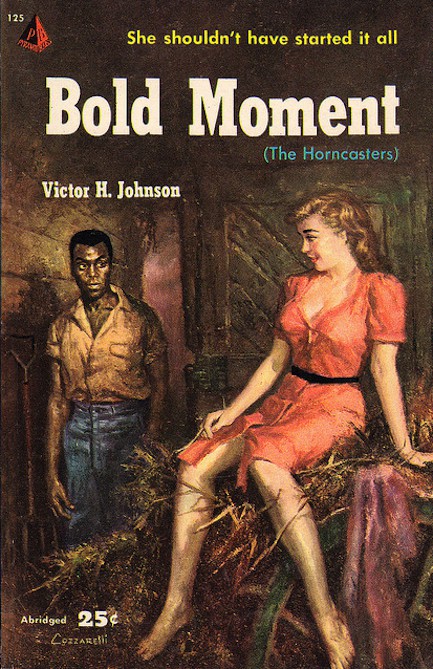 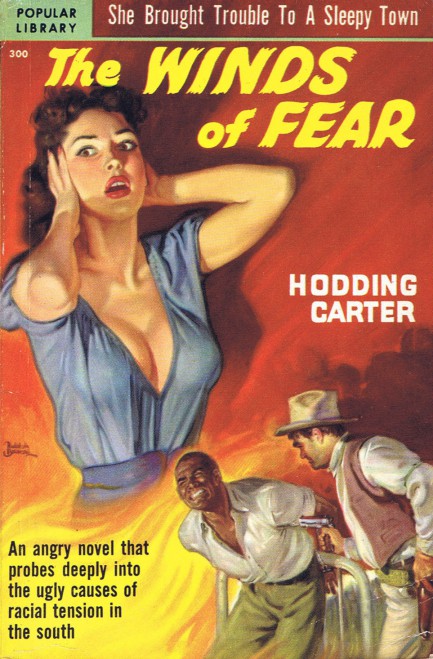 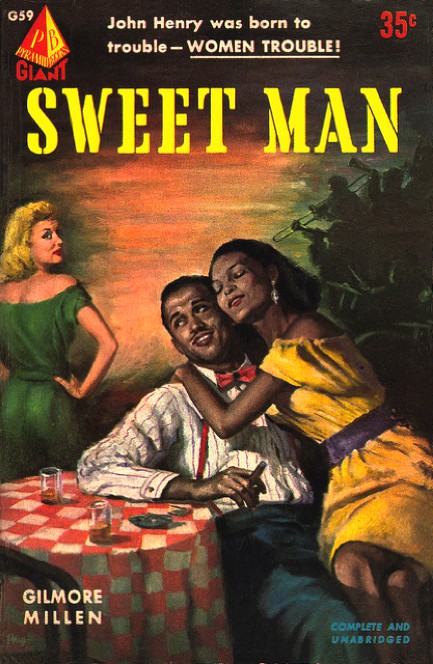 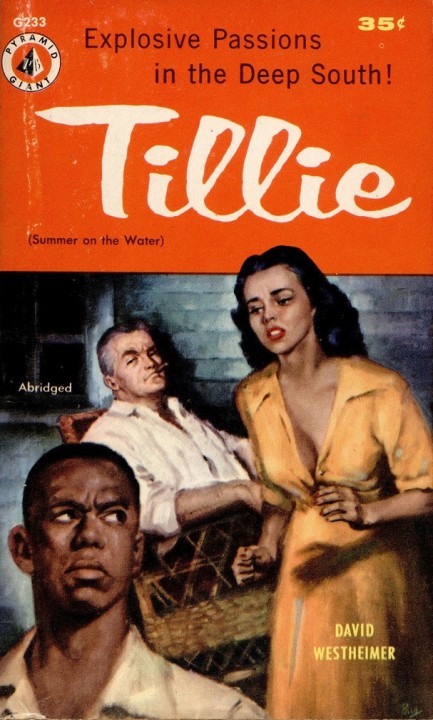 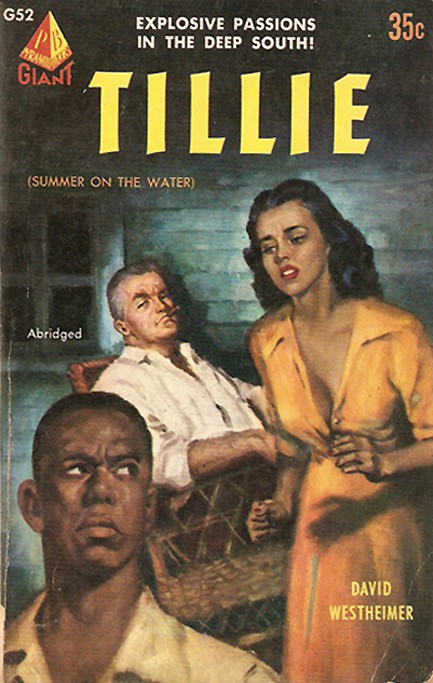 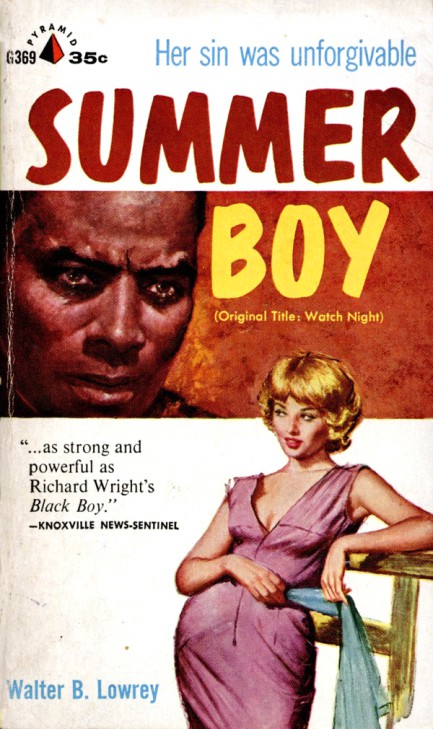 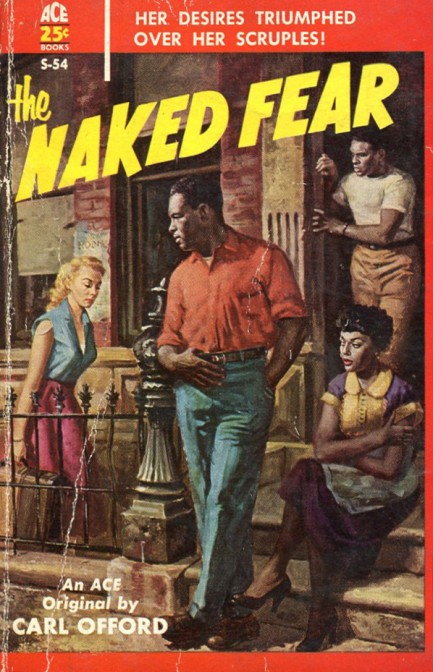 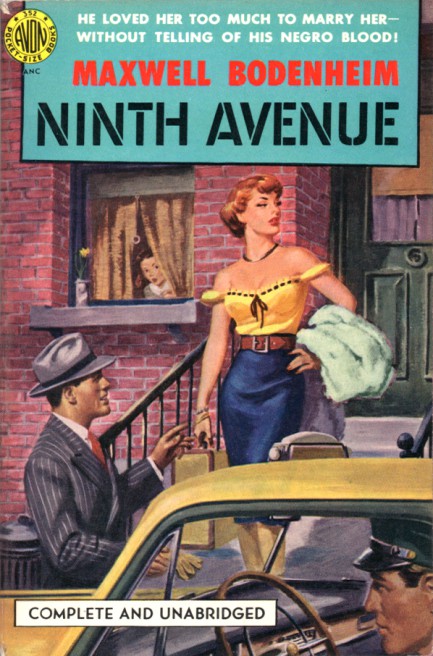 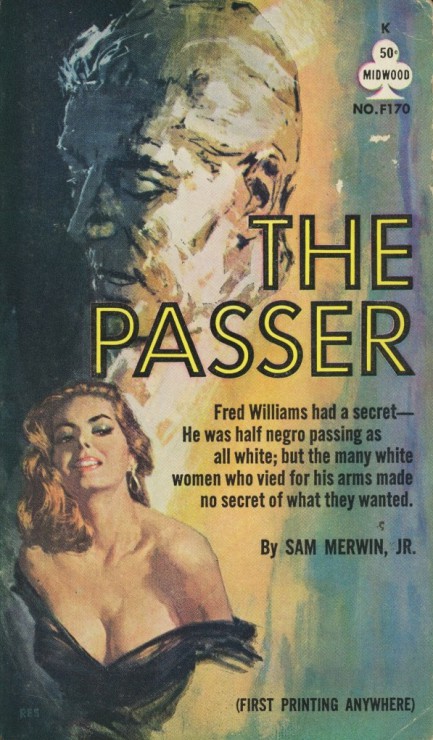 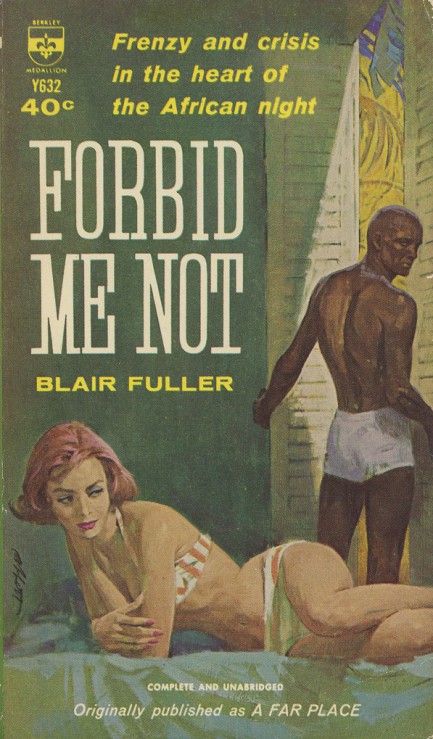 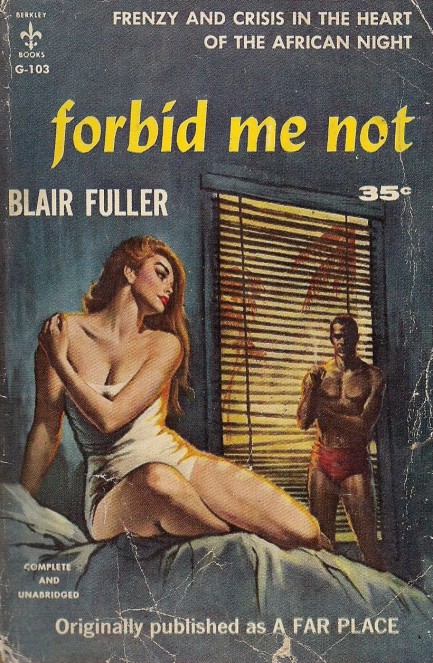 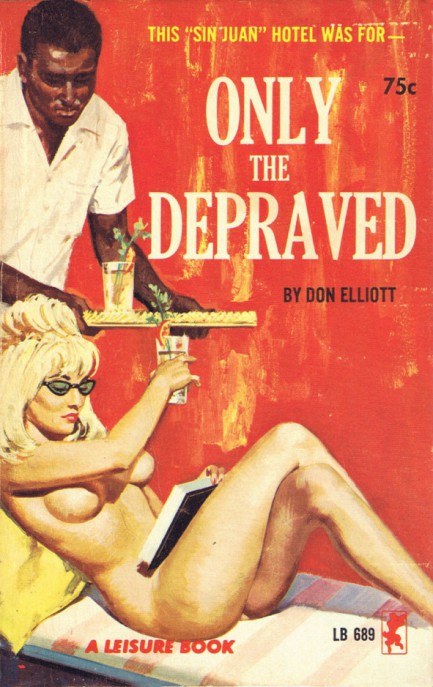 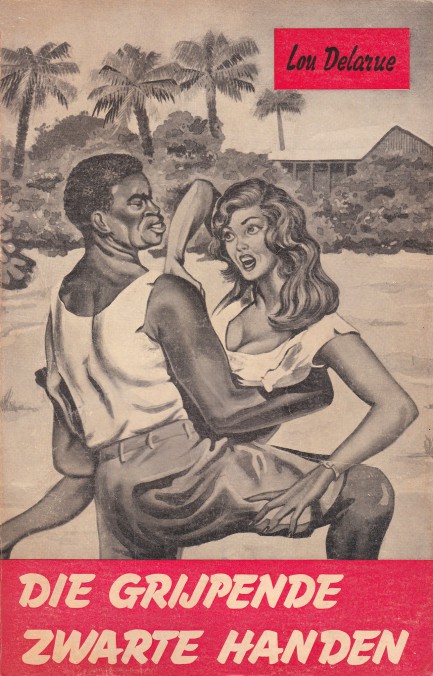 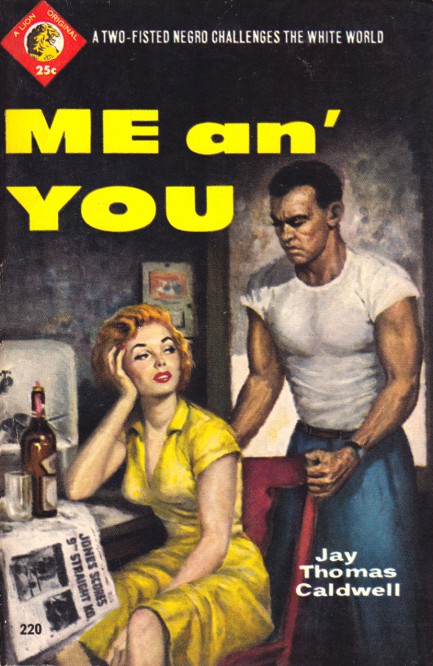 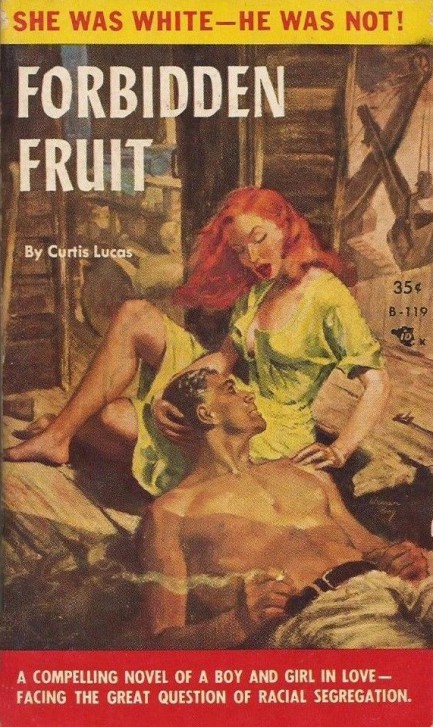 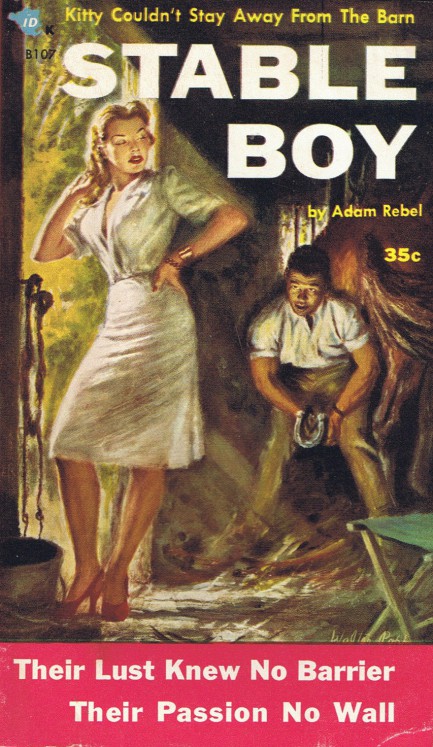 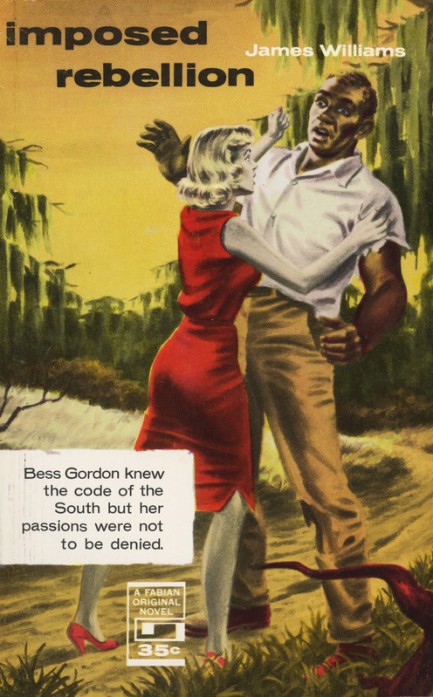 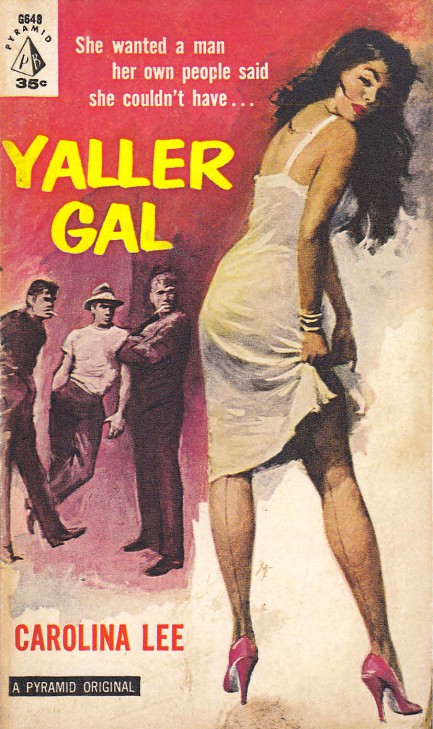 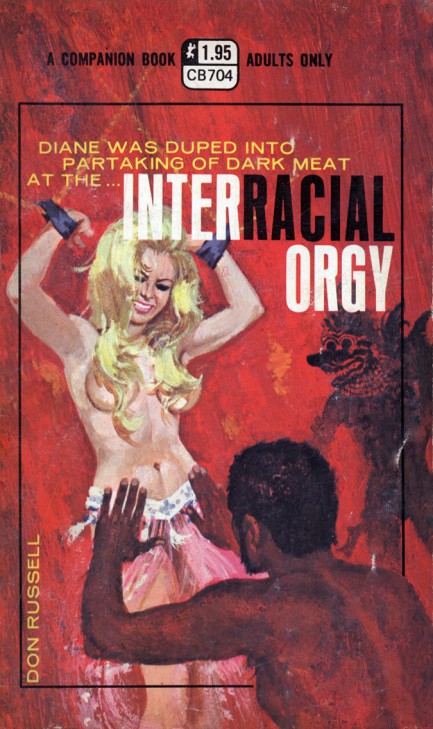 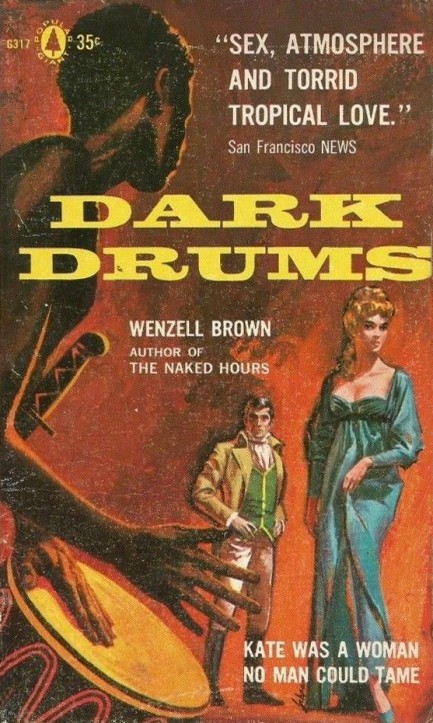 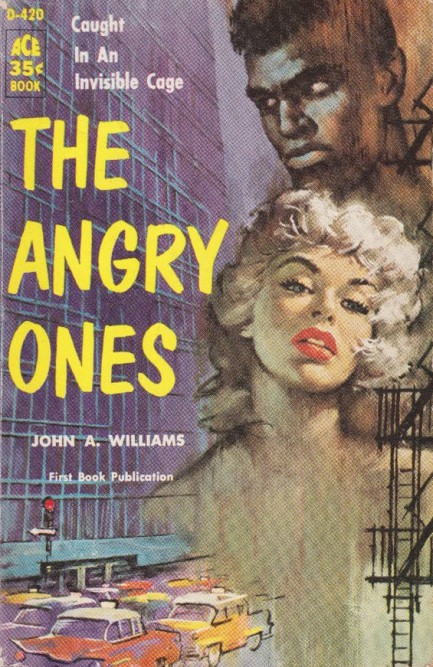 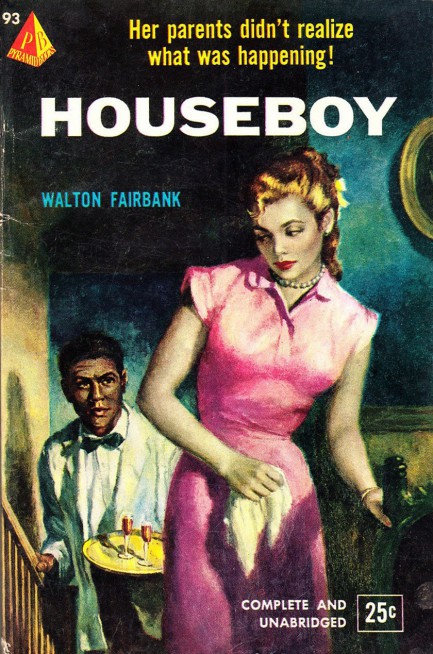 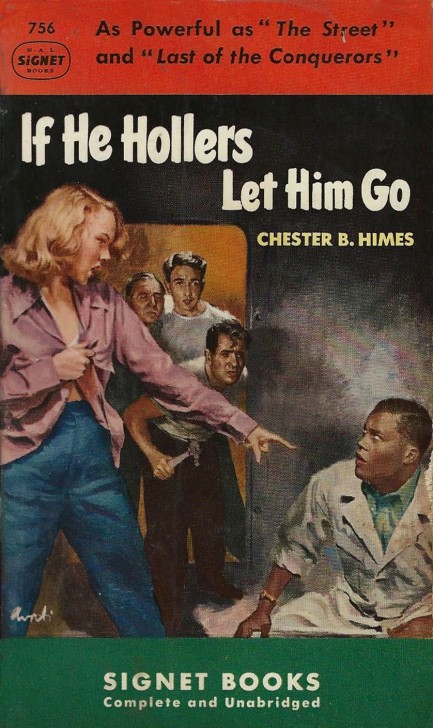 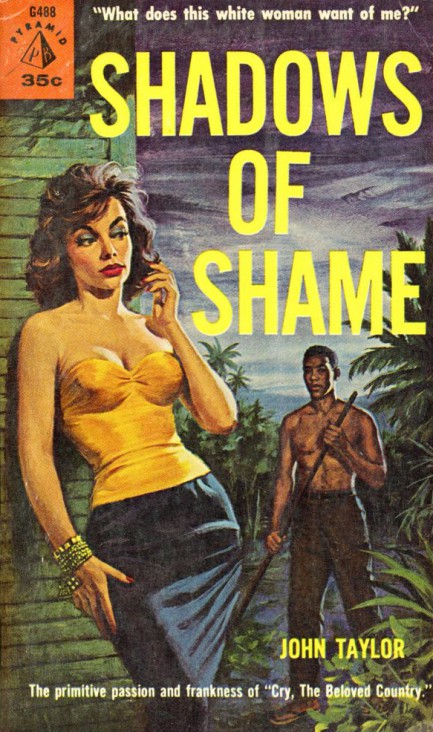 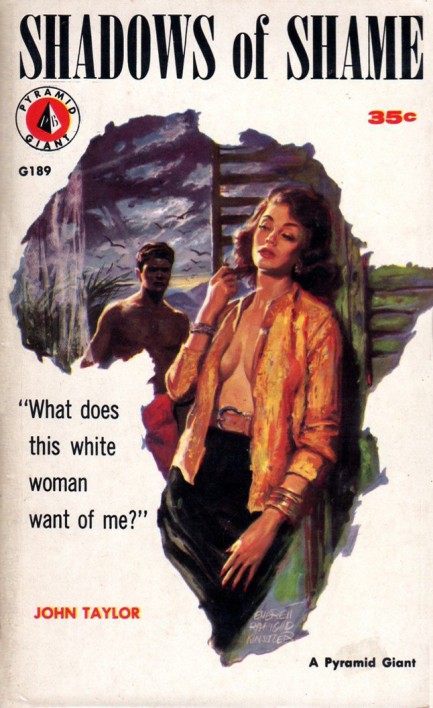 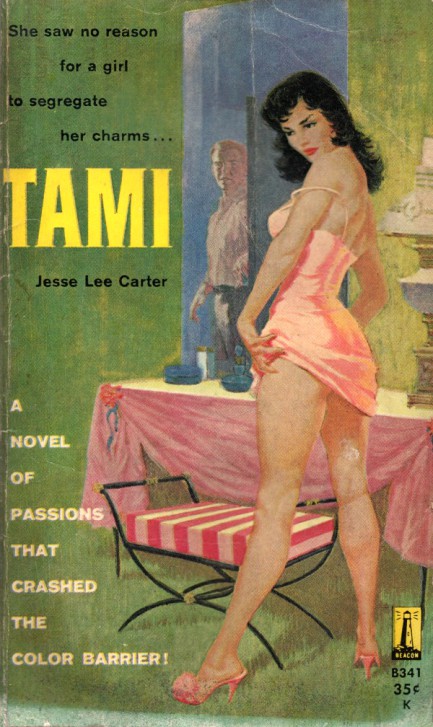 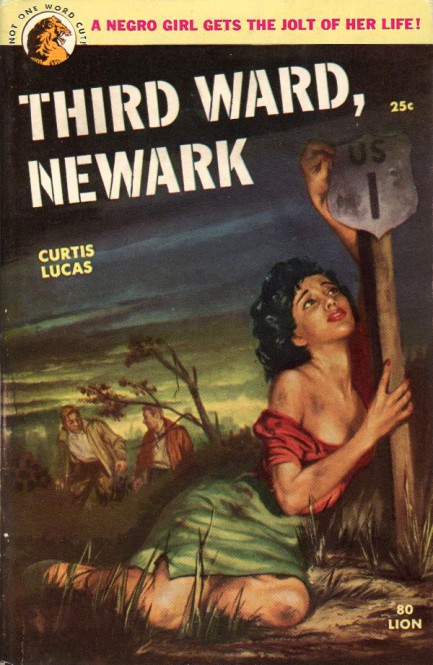 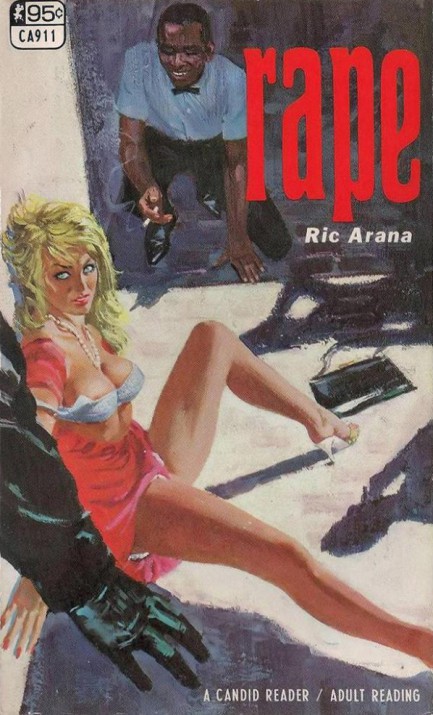 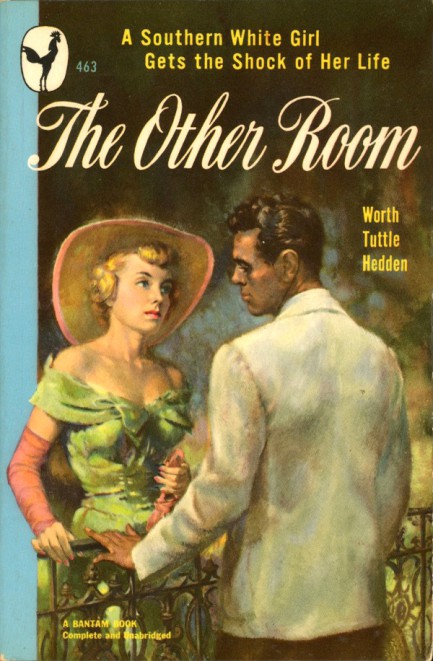 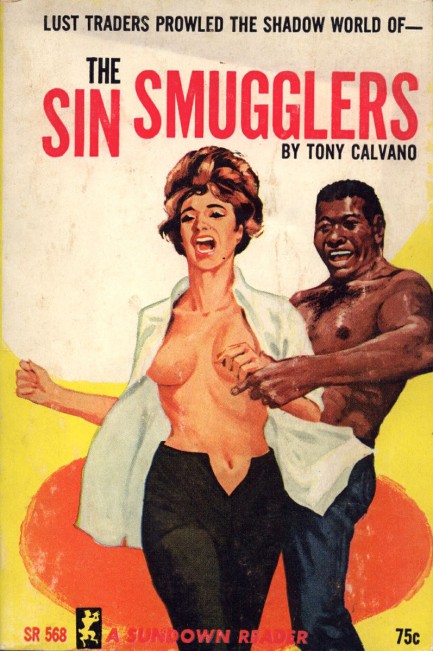 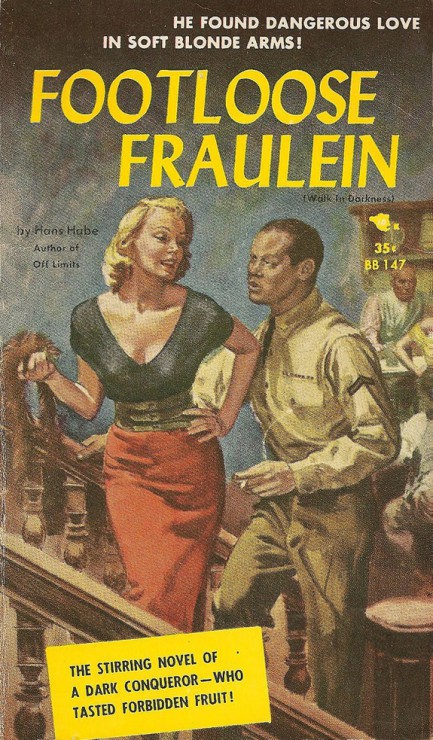 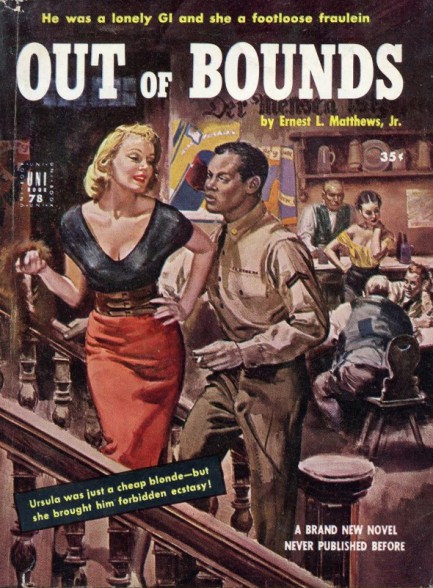 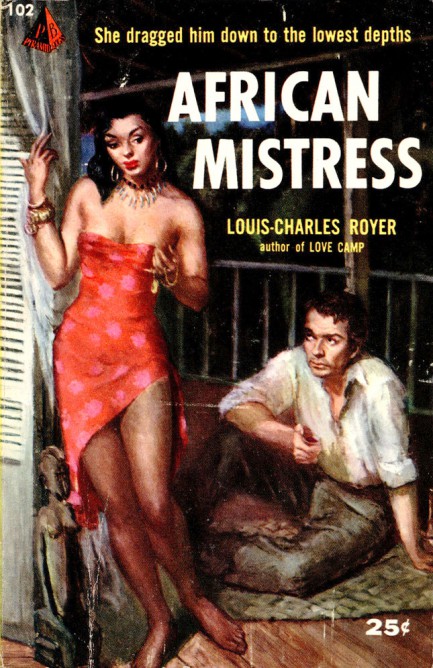 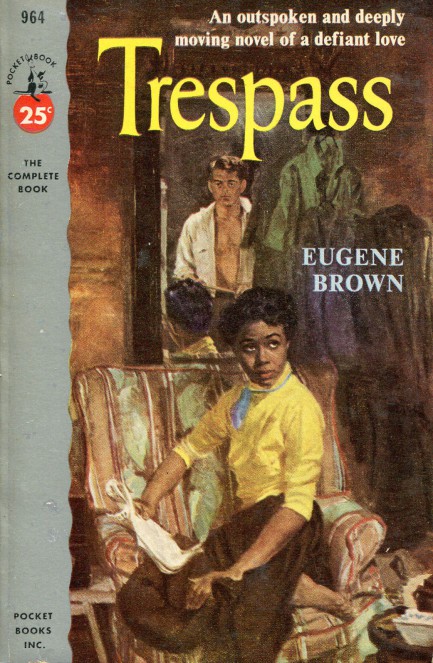 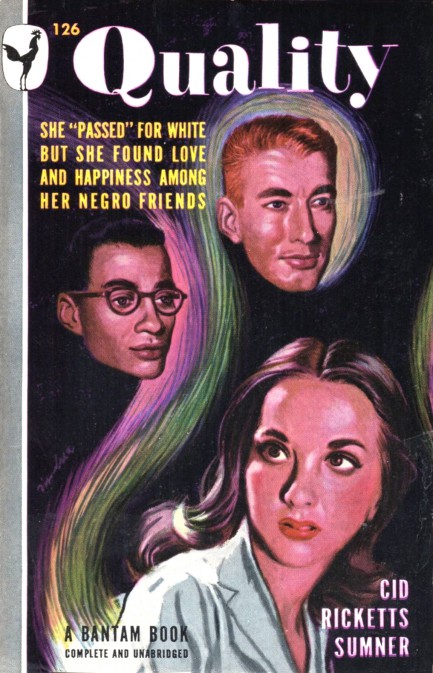 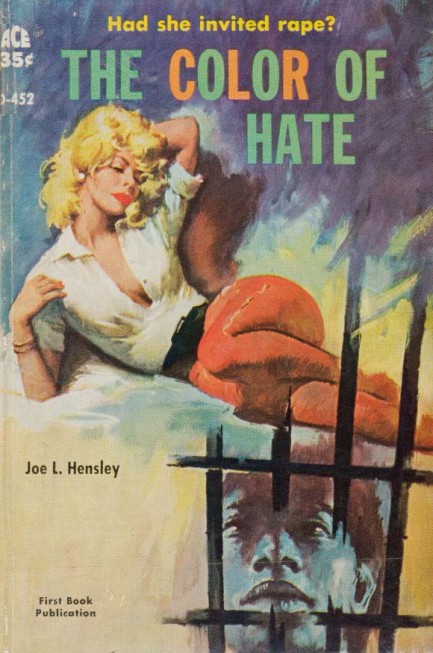 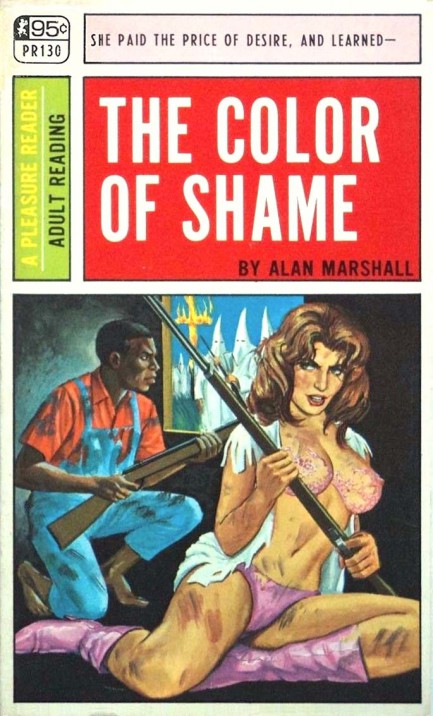 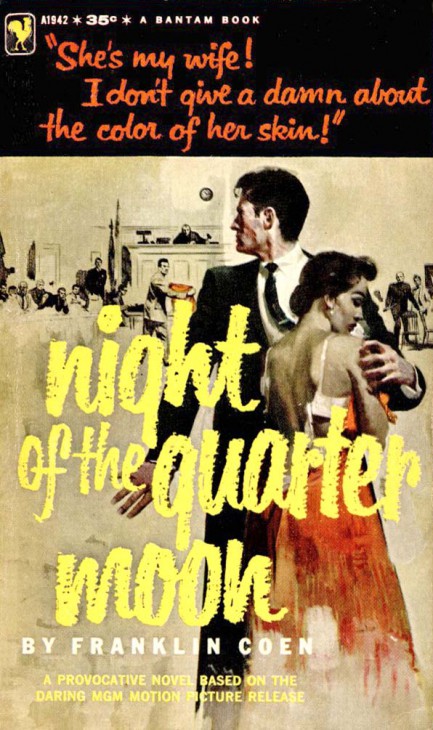 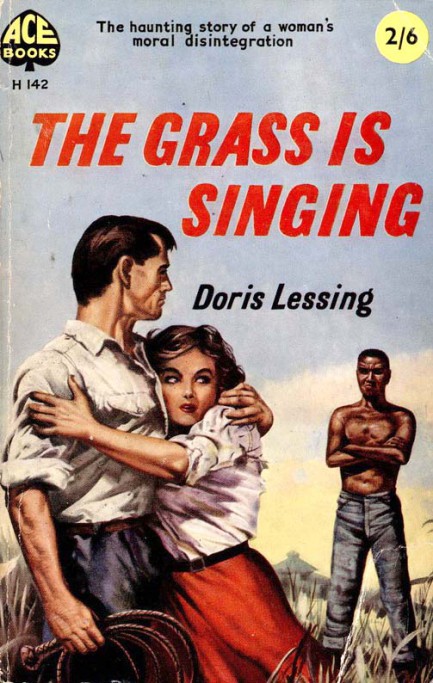 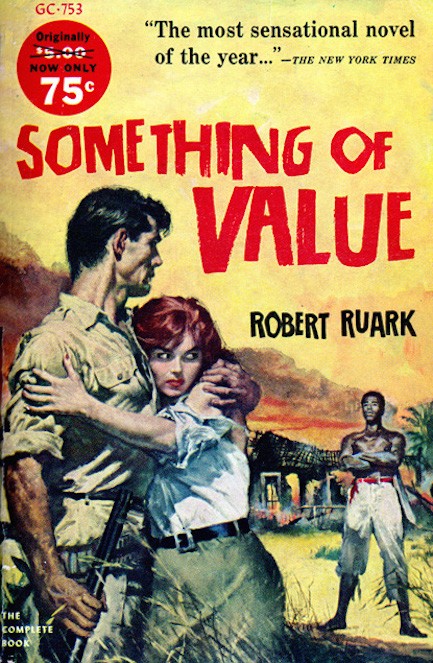 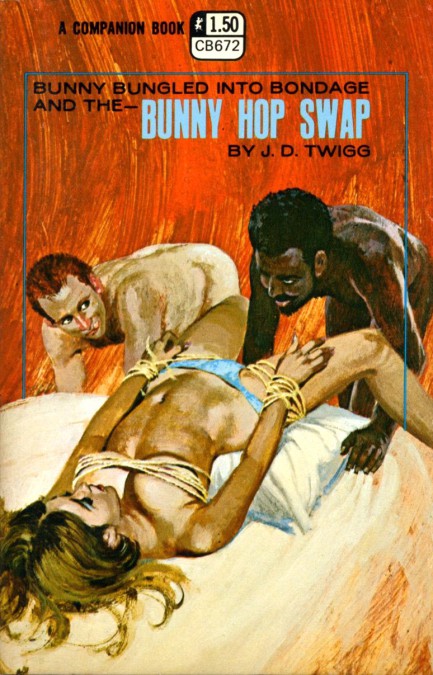 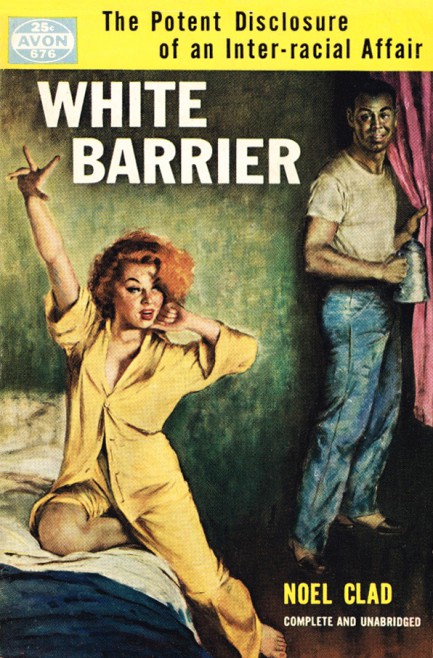 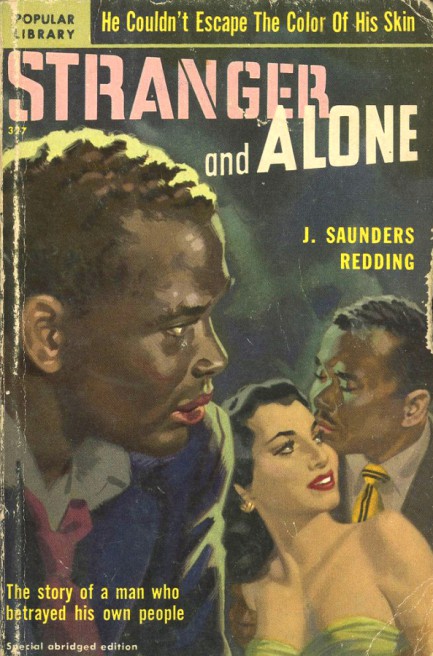 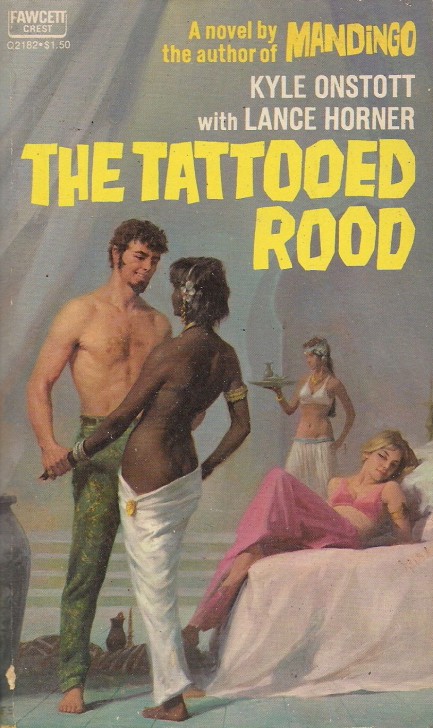 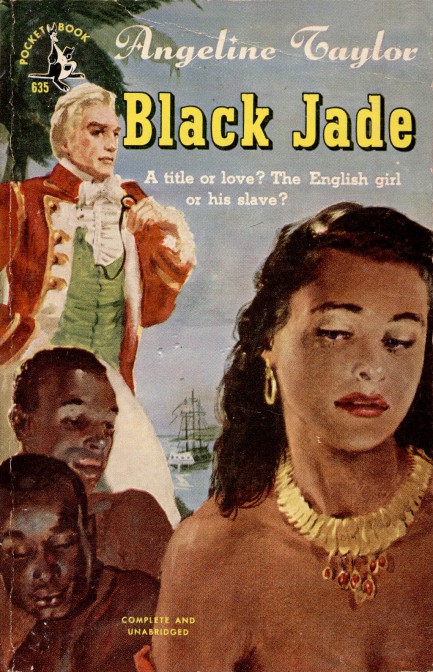 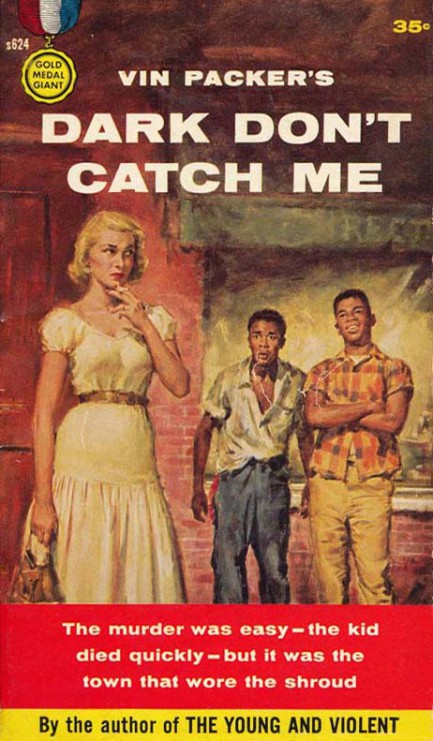 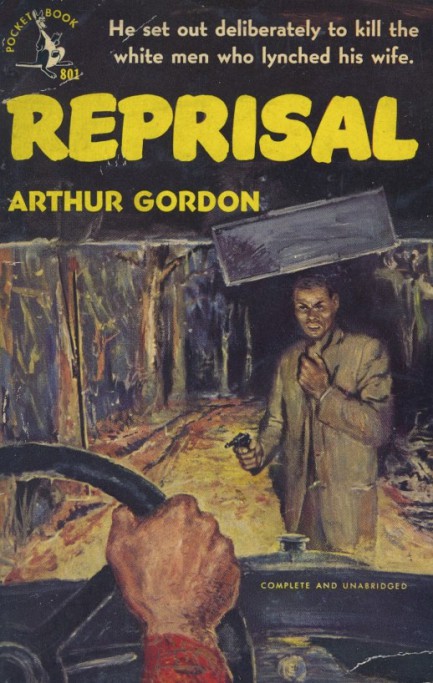 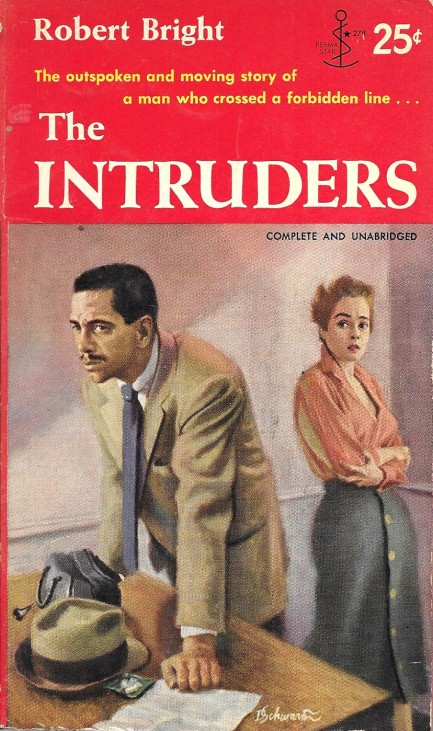 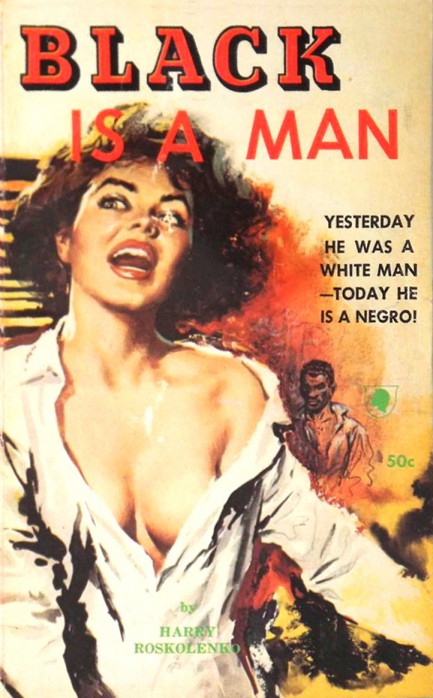 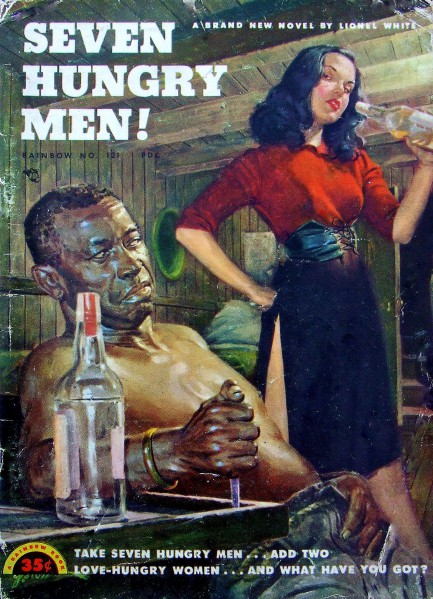
 It’s not their fault—it’s a jean-etic disorder. In pulp and sleaze fiction there are many types of bad women—vamps, golddiggers, black widows, you name it—but women who wear jeans, or even jean shorts, are destined for a special brand of trouble. Some of these women are already corrupt while others are merely at the gateway, but they all end up in the same place—Calamity City, daddy-o.
|
 |

The headlines that mattered yesteryear.
1945—Mussolini Is Arrested
Italian dictator Benito Mussolini, his mistress Clara Petacci, and fifteen supporters are arrested by Italian partisans in Dongo, Italy while attempting to escape the region in the wake of the collapse of Mussolini's fascist government. The next day, Mussolini and his mistress are both executed, along with most of the members of their group. Their bodies are then trucked to Milan where they are hung upside down on meathooks from the roof of a gas station, then spat upon and stoned until they are unrecognizable. 1933—The Gestapo Is Formed
The Geheime Staatspolizei, aka Gestapo, the official secret police force of Nazi Germany, is established. It begins under the administration of SS leader Heinrich Himmler in his position as Chief of German Police, but by 1939 is administered by the Reichssicherheitshauptamt, or Reich Main Security Office, and is a feared entity in every corner of Germany and beyond. 1937—Guernica Is Bombed
In Spain during the Spanish Civil War, the Basque town of Guernica is bombed by the German Luftwaffe, resulting in widespread destruction and casualties. The Basque government reports 1,654 people killed, while later research suggests far fewer deaths, but regardless, Guernica is viewed as an example of terror bombing and other countries learn that Nazi Germany is committed to that tactic. The bombing also becomes inspiration for Pablo Picasso, resulting in a protest painting that is not only his most famous work, but one the most important pieces of art ever produced. 1939—Batman Debuts
In Detective Comics #27, DC Comics publishes its second major superhero, Batman, who becomes one of the most popular comic book characters of all time, and then a popular camp television series starring Adam West, and lastly a multi-million dollar movie franchise starring Michael Keaton, then George Clooney, and finally Christian Bale. 1953—Crick and Watson Publish DNA Results
British scientists James D Watson and Francis Crick publish an article detailing their discovery of the existence and structure of deoxyribonucleic acid, or DNA, in Nature magazine. Their findings answer one of the oldest and most fundamental questions of biology, that of how living things reproduce themselves.
|

|
|

It's easy. We have an uploader that makes it a snap. Use it to submit your art, text, header, and subhead. Your post can be funny, serious, or anything in between, as long as it's vintage pulp. You'll get a byline and experience the fleeting pride of free authorship. We'll edit your post for typos, but the rest is up to you. Click here to give us your best shot.

|
|



























































